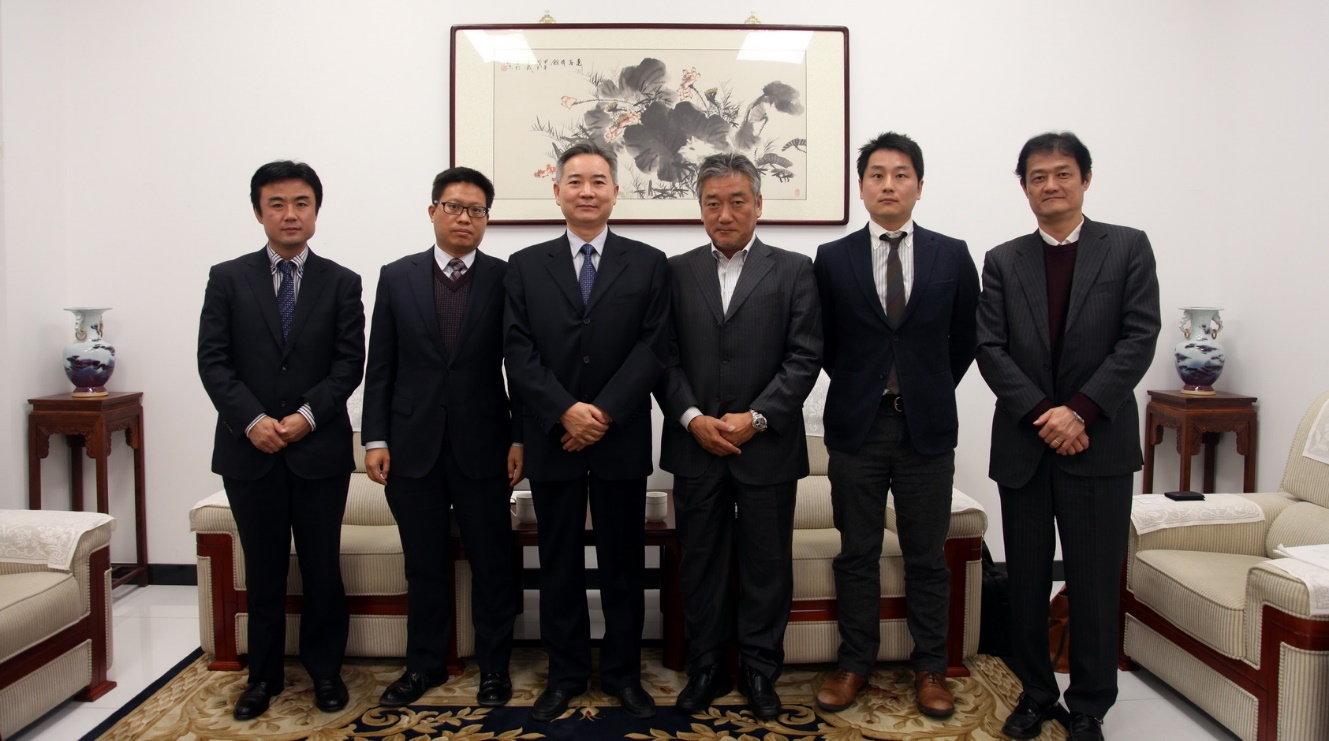Head of Economic Research Department Xu Hongcai meets with Yasuhiro Kuronaga from Mitsui Global Strategic Studies Institute
- Time:2015-11-09
- source:CCIEE
Head of the Economic Research Department of CCIEE Xu Hongcai met with General Manager Yasuhiro Kuronaga and Analyst Hideaki Kishida of the Asia, China and Oceania Department of Mitsui Global Strategic Studies Institute, and General Manager Koizumi Yoshio and principal researcher Zhang Zhe of the Economics Studies Department of Mitsui & Co. (China) LTD. Also present was Mr. Liu Xiangdong, Chief of the Macroeconomics Division of the Economic Research Department.

Mr. Xu Hongcai gave a brief introduction to the China-Japan “track II” dialogue to be co-hosted by CCIEE and Keidanren, and answered their questions about the hot issues and challenges in China’s economy. He pointed out that CCIEE has carried out multi-leveled exchanges and cooperation with Japanese counterparts. While such exchanges were more focused on China-Japan-ROK FTA in the past, they will from now on center around the China-Japan CEO and Former Senior Officials’ Dialogue. Regarding the recently published suggestions for the 13th Five-Year Plan and China’s economic situation, Mr. Xu noted that to keep China’s GDP growth rate above 6.5% in the coming five years, certain conditions must be met, that is, it must meet the target of doubling national income by 2020 as proposed by the report of the 18th CPC National Congress. Judging by the current trend of development, China stands a good chance of maintaining its growth rate at somewhere between 6.5%-7% in the next five years, as the new type of urbanization, the “Belt and Road” initiative, the innovation and entrepreneurship program and the upgrade of consumers’ structure will provide a strong support for sustained and stable economic growth in China. The risk of China falling into the middle-income trap would be very small, even if China is faced with the challenges of overcapacity, rising non-performing loan ratio of banks, the pressure to reduce debt and the outflow of foreign capital. So long as the reform measures are well implemented, all these risks can be defused.
When asked about the impact of Abenomics on Japan’s economy, such as raising the consumption tax, Mr.Yasuhiro said that policy-wise, Japan will continue to pursue QE, but the depreciation of yen will not boost Japan’s export, as Japanese companies have long outsourced their business. Increasing the consumption tax from 8% to 10% is inevitable. Although it will have an adverse impact on Japan’s economy in the short run, it is good for stabilizing economic growth in the long run. Speaking of Mitsui’s future investment orientation, Mr. Yasuhiro noted that the company used to focus its investment on energy resources, but it has adjusted it in response to China’s economic transformation, and will invest more in the consumption area.
The two sides also exchanged views on jointly promoting bilateral trade and economic cooperation, China-Japan-ROK FTA, RCEP, TPP, FTAAP and other high-level trade agreements, and expressed the hope to increase exchanges in the future.
